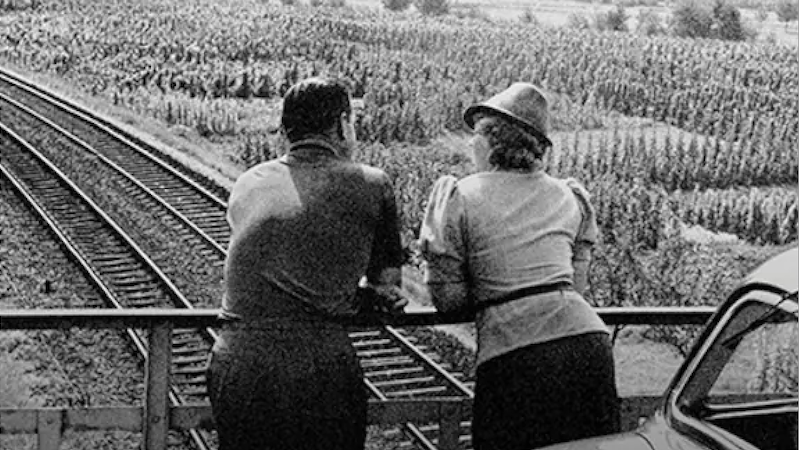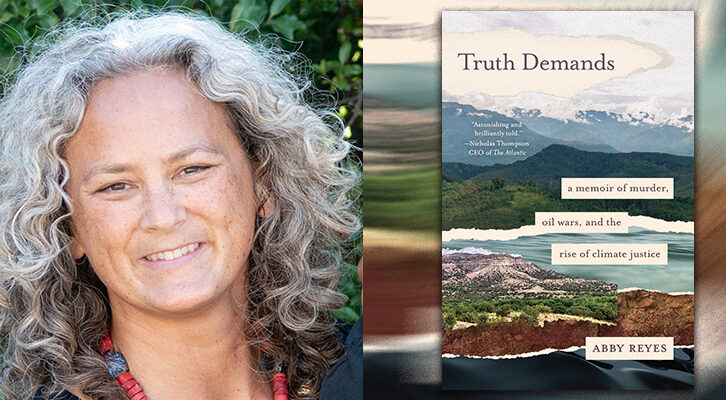The Pain of Suddenly Realizing You’ve Become a Stepmom
Emma Duffy-Comparone on the Struggle to Make a New Family Work
One November, in my mid-twenties, I fell hard and fast for a divorced dad. We weren’t reasonable about it. We couldn’t pace ourselves. We lived anywhere from 90 minutes to three hours apart, depending on traffic. There was always traffic, and I worked late. But on any night he was alone—he had 50/50 custody of his eight-year-old son—I’d get in the car after work, even if it meant I didn’t show up until midnight, even if it meant I left at four AM to beat the traffic home, to spend the night with him. When he could, he’d do the same. We never slept. We lived out of duffel bags. We lived for his “off” weekends, when we fled to a bed and breakfast we’d found on the Cape. I remember writing in marker on the small whiteboard on his fridge: I want it all now.
By New Year’s, we were talking about getting married. But it was easy to dream like this when we were alone, on the Cape, far away from his dismal Divorced Man’s apartment—the only place he could find to rent near his ex-wife’s house—where his third-grade son, who didn’t yet know I existed, was likely sitting down to dinner and counting the hours before he would see his dad again.
A few months in, I started out as a voice on the phone—instead of hanging up before his son climbed into the car after school, my boyfriend began to linger on the call with me until his son asked, “Who’s that?” and then, “Is that Emma?” and then, “Hi, Emma!” and then, “Put me on!” Once we’d been introduced in person—I’d met up with them a few times in public, at a bowling alley, at a restaurant—I was finally free to be at his place when his son was there.
We started with Saturdays. As far as I could tell, his son seemed OK with my being around. Their routine didn’t change much. I tried to join in—I’d do my best to shoot hoops, or I’d grab a video game controller and blindly mash on the buttons—but he seemed happier to have me as a spectator more than a player, so that’s often what I did, from the sidelines cheering them on, or on the couch behind them while they sat on the floor with their matching cowlicks, eating Fritos and shooting the legs off video game bad guys. At night we’d watch a movie, and his son would insist on sitting between us, and sometimes he’d rest his head on my shoulder, which thrilled me. When it was time for him to go to bed, I’d pretend I was also leaving and put on my coat, and when he seemed satisfied that the show would not go on without him, he’d say, “group hug!” and motion wildly for us to bring it in.
One November, in my mid-twenties, I fell hard and fast for a divorced dad.We began introducing PDA methodically. We held hands sometimes. On occasion, I’d put my feet in his lap. He had once, in front of his son, declared me the most exquisite thing he had ever seen. After a few months of this, his son obviously understood—I had to believe—that we were dating. So on my birthday, picking up the vanilla cake his son requested, it seemed part of a natural progression when, as his son stared into the glass case of pastries, my boyfriend kissed me.
It was a quick one, but his son had seen it, and from the look on his face it became abundantly clear that in no way had he understood we were dating, or if he’d had suspicions, did not want them confirmed. On the ride home, his son fingered the window controls, sending March air slicing through the car, and back at the apartment, as my boyfriend walked into the dining room carrying the candle-studded cake, singing, his son announced softly that he was tired and limped upstairs to his room.
For a few minutes, barely breathing, stiff with dread, we pretended this was a normal development—
“Frosting’s pretty good, actually.”
“Yeah, they didn’t use that shitty oil.”
—until my boyfriend set down his fork—
“I think I’ll just—”
“Yeah.”
—and headed up the stairs gingerly, two by two. I sat at the table for a few minutes, staring at the cake, and then I began to hear noises—laughter? I crept up the stairs to listen. Was it laughter?—but it quickly dawned on me that what I was hearing was not laughter but my boyfriend’s child crying.
The reason the little guy wanted to sit in the middle, I realized, as I stood in the kitchen listening to his grief, was not to avoid sharing me with his father, like I had stupidly thought, but probably to avoid sharing his father with me.Every hiccup and sob crashed down the stairs like a chandelier.
The reason the little guy wanted to sit in the middle, I realized, as I stood in the kitchen listening to his grief, was not to avoid sharing me with his father, like I had stupidly thought, but probably to avoid sharing his father with me.
When he asked if I was coming back tomorrow, I realized, it didn’t necessarily mean that he was hoping I would.
The only thing to do, it was obvious, was disappear.
So I just got in the car and went.
Twenty minutes later, my boyfriend was calling, asking me where I was. I could tell he’d been crying.
“The highway,” I said.
“Why?” he said.
“Why?”
“He just didn’t realize what the deal was.”
Things were mostly fine after that, although they weren’t the same. But my boyfriend and I continued to barrel along, impatient, wanting it all, until we both moved out of our apartments and into a new one, together, the three of us.
We had it all then. All of it.
I can only imagine how hard the transition was for his son. He was an only child, for one thing, already dealing with his parents’ split, and now I had crashed what had been an 18-month nonstop party with his dad, who gave him his constant and undivided attention. Now he was in a new, strange place, with new, strange furniture and new, strange cats, which he hadn’t grown up with, and new, strange food being cooked by a new, strange me, offering him a hug I was always afraid he would refuse.
I wasn’t doing that well, either, although I wasn’t ready to admit it. Time alone with my boyfriend was lovely, but the minute his son would come back from his ex-wife’s house, the boys happily reunited after two days, shouting and wrestling and laughing, catching up, making plans for the days ahead, I would grow tense, the cats already leaping from my lap and scattering, and me not far behind. It was hard to know what to do for those days. It was hard to know where to be, or where to sit, even, not wanting to be in the living room where they were, and knowing, although his son was very sweet and would never have said it, that I probably wasn’t all that wanted, either. Stranded in a strange city, far away from my friends and family and the sleepy coastal town I loved, I didn’t have much going on in my new, strange life except for my boyfriend, and for half the week, I felt like a stranger in my new, strange home.
My boyfriend, meanwhile, the only common denominator, was trying desperately to get the puzzle pieces to fit, usually caught in the middle of what I wanted and what his son wanted, which was sometimes just his attention. He wanted to spend time with me, I know, and wanted me to be happy, but he was a father first, although I couldn’t say I saw much of what I thought of as “parenting.” It was more like my boyfriend was his son’s best friend. If his son had been old enough to sit in the front seat, I’m sure we would have fought for it. I already felt like an interloper—they were the family, after all, and we weren’t married—but I also began to feel like a third wheel in my own relationship. I was in, it was dawning on me, a love triangle.
Now he was in a new, strange place, with new, strange furniture and new, strange cats, which he hadn’t grown up with, and new, strange food being cooked by a new, strange me, offering him a hug I was always afraid he would refuse.One day, I sat down and wrote a paragraph. It came easily, and so did the tone: a little weary, a little edgy. Then I forgot about it, and a year went by. At this point, I felt sick a lot. I couldn’t digest anything. A knot in my stomach burned all day, so hot and tight I could barely breathe. I finally went to my naturopath, who had known me for years. “Do you have any buried feelings?” she said. “No,” I said. “Are you angry?” she said. “No,” I said. “Are you jealous?” “Jealous!” I said. “Why would I be jealous?” My naturopath flipped through a big book on her desk. “I’m a stepmother,” she said.
“Really,” I said.
She looked up at me and nodded.
Then I burst into tears.
Other women, women I had known for years but who had never mentioned stepchildren, began to pop up and trade notes with me. They were the same stories. I got a few self-help books for stepmothers and read them at a coffee shop. I realized, from the first chapter, that I wasn’t alone. These feelings—of alienation and jealousy, of resentment and powerlessness, of anger and loneliness—were, as they say, textbook. So were the relationship dynamics. I read about things like “guilty dad syndrome.” I read advice about setting boundaries, about lowering expectations, about detachment. I read things like on average, it takes at least seven years for a blended family to feel like a family, if ever. I read thing like, sixty to seventy percent of marriages to partners with other children fail.
I dug up that paragraph I’d written a year before. I changed the point of view from third person to second person. I wrote another paragraph. I’d never written in the second person before, but it felt right for this. It felt universal, like I was writing to and for these women whose shoes I’d shared, and it gave the voice a heightened sense of self-awareness, as if a confession. I pulled one of the self-help books out and looked at the table of contents and decided to dramatize the main issues raised, using the order of the chapters as a kind of emotional arc for three characters—a woman, a dad, and a child—as they wrestle with this confounding, universal, and little talked about dynamic. I read more books. I read message boards and talked to more women. And then I let it rip. I never wrote too closely to my actual experiences, but I wrote from the fundamental truth that I was still coming to understand, keeping an eye on the arcs of the father and child characters, having empathy for them and their journeys, but also letting the main character—you—feel what she’s not supposed to feel and say what she’s not supposed to say.
__________________________________

Love Like That: Stories by Emma Duffy-Comparone is available now via Henry Holt & Company.




















